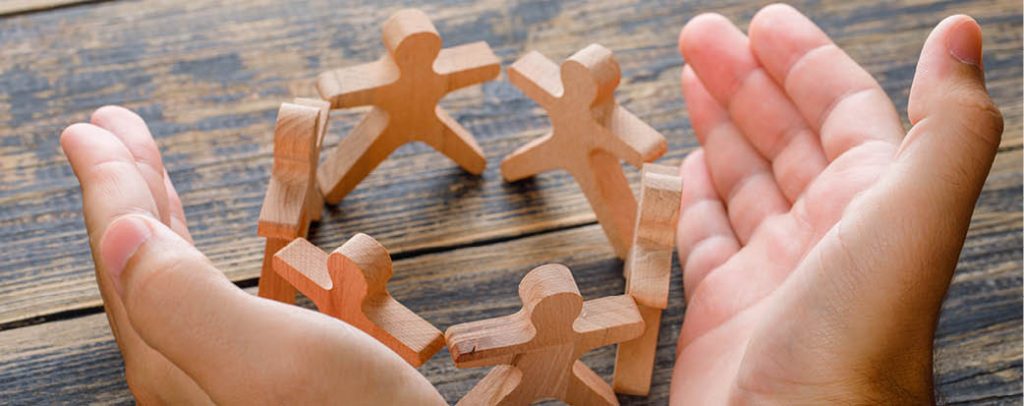Building strong teamwork skills are essential in every organisation, no matter your job title or industry. Working together in groups leads to better results than working alone, and that’s why company directors are looking to employ people with excellent team building skills, as well as fostering these skills in their employees.
What is teambuilding?
Team building in the workplace is the practice of bringing employees together, fostering strong relationships, and transforming them into a cohesive team. The main purpose is to create a strong team through forming strong bonds and connections. Creating these connections through team building is very beneficial to businesses and organisations.
What are teambuilding skills?
Team building skills equip employees with the ability to work as a team with a common goal or purpose. In this group, team members feel valued, and are free to share opinions, input, and plans. The team can work together to achieve the set goals through collaboration and understanding each other’s strengths and weaknesses. Well-rounded employees should have a versatile mix of qualities that should be nurtured and developed throughout their careers. You can build these skills through activities such as team building as well as other corporate events. Getting your employees together outside of work is extremely beneficial in encouraging friendships and deeper relationships.
A close-knit team ensures productivity, motivation, and a positive work environment. Building a strong team doesn’t happen overnight. You may have a group that meshes well organically; however, it is up to team leaders to reinforce relationships with effective strategies. Teams with connected employees see productivity increase 20-25%.

Communication
To effectively unite a team, you need to have excellent communication skills. Building communication skills helps to delegate responsibilities, explain company goals, solve conflicts, and outline expectations. 97% of workers believe that communication impacts tasks every day.
In addition to communicating and sharing your ideas, developing active listening is important for your team to feel that their opinions are important and that they’re valued.
Stress management and emotional control also fall under the communication category. Your team needs to know that their colleagues can control their emotions, take feedback, and are not overwhelmed.
Successful communication helps us better understand people and situations, as well as build trust and respect in the workplace. 86% of employees and executives cite lack of collaboration or ineffective communication for workplace failures.

Delegation
A good team leader knows that they cannot complete group tasks alone. Team leaders should clearly and concisely lay out each team member’s responsibilities and what is expected of them. This way, everyone is responsible for a piece of the group’s goal.
Good delegation ensures project efficiency and can help a group achieve a goal on time and to a high quality. To effectively delegate duties, you must define objectives, schedule tasks, set and manage your expectations and give constructive feedback to your team. Delegation also invites responsibility and leadership skills within your team.

Empathy
Empathy helps you to understand the feelings of your team members, giving insight into their struggles and needs. In learning how to empathise, you view things from your teams’ point of view and find solutions to help them achieve their set goals and objectives.
In identifying how you can better empathise, ask yourself; are you comfortable with connecting with others? It is important to identify what kind of help your peers seek. Are they looking for advice, or just a listening ear? Self-awareness is key to developing empathy; the more self-aware you are, the less likely you are to project your needs on others.

Leadership
As a leader, you have to assume responsibility for your team. You’re required to make decisions, solve conflicts, establish group goals, and collaborate with your team to achieve the best results. You can demonstrate and improve your leadership skills by recruiting team members, making critical decisions in the team, and ensuring team goals align with the organisation’s goals.
Good leaders will develop all of their core skills to ensure that they are well-rounded individuals. Not only should leaders develop their own skills, but they should encourage their teams to work on their own. This will ensure that their teams become well-developed and work well together.

Motivation
Team members should feel motivated, invested, and excited to be at work, and perform their tasks. A team leader gets other team members excited about setting and achieving project goals. This kind of motivational energy can take many forms. Perhaps you come to work every day with a positive attitude, or maybe you encourage your other teammates with positive feedback.
Another way to motivate team members is to provide incentives. These might range from bonuses and other financial rewards to extra days of fun group activities. A team builder can think of creative ways to inspire the team to do its best.

Patience
It’s essential to be patient with your team. Understanding your team and being tolerant of mistakes can help you have a strong team in the future. When your team members know they have room for making mistakes, they’ll be more willing to try new tasks and be creative. Also, they’ll be more inclined to give their opinions and ideas whenever needed.
It is also important to appreciate and adapt to the different personality types within your team, and how to engage with them. There might be one team member who uses pet names and casual email signatures, whereas another team member might prefer to keep it more typically professional. It is important to measure how your colleagues interact and react to one another. Respecting individuality and comparing colleagues wastes time as well as creates tensions. Why not spend this time getting to know new colleagues, and learning their personalities?

Problem-solving
A leader must help to resolve issues and tensions within the workplace. They need to be a mediator who can listen to two sides of a problem and help everyone agree. The goal of a leader is to solve problems in a way that helps the team achieve its goals and keeps its members working well together.
Problem-solving skills are important in fostering creativity, time-management, and prioritisation. Problem solvers should be able to assess the needs of a brief and execute a solution that suits all stakeholders.

Reliability
Your team members should know that they can get help whenever they need it. Be approachable and always be willing to listen to them before telling them off. When your team knows they can rely on you, they are more likely to become reliable as well. To be reliable, be sure to participate in the group work, give help whenever you can, be hands-on and take responsibility for your team’s actions.
Creating a reliable team mainly relies on company culture. If your employees know that they will be taken care of, by their managers and their employers, then they are more likely to give more in return.

Teamwork
To be a good leader, you must first demonstrate good teamwork skills. To do this, you must be willing to work with your team members. It is important to be attentive and open to applying your team members’ ideas to show them that they are valued.
Encouraging your employees with positive words as well as burying blame and channelling this energy into something more productive like problem-solving can make teamwork more gratifying and efficient. Pointing fingers creates an uncomfortable environment in which teamwork tends to die. If your colleagues are uncomfortable with one another, they are less likely to want to collaborate or engage with one another.

